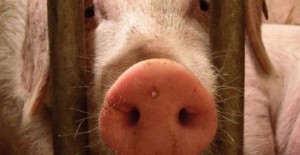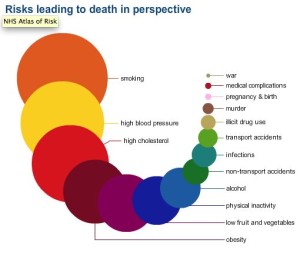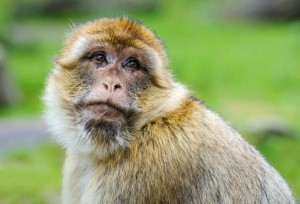Worldlog Semena 9 – 2015
A origem da carne que é usada em produtos como lasanhas, pizzas e salsichas deve constar claramente no rótulo. Por isso nosso partido pleiteou no Parlamento Europeu e uma maioria votou a favor! Na etiqueta deve constar o local de nascimento, crescimento e abate dos animais incorporados ao produto. Esse rótulo dá aos consumidores clareza sobre a origem e faz com que o transporte longo seja visível. Um leitão que nasceu na Holanda e foi abatido na Itália, é imediatamente claro que ele já percorreu um longo perscurso de sofrimento antes mesmo da chegada ao matadouro. Aos carnívoros é dada a opção de dizer “não” ao absurdamente longo transporte de animais e a escolha de produtos locais é mais fácil. Além disso, um selo de origem assegura que a fraude da carne é melhor rastreável.
Na semana passada, um infográfico foi apresentado no Twitter que mostra os riscos à saúde em perspectiva. Fumar no topo da lista das causas de morte. Notavelmente, vários riscos para a saúde, como pressão alta, colesterol alto, obesidade e comer poucas frutas e vegetais muito maior pontuação do que coisas como acidentes de trânsito, a guerra e uso de drogas. Acho isso muito preocupante, especialmente agora que o novo FTA TTIP ameaça vir. O objetivo deste FTA é fazer com que o comércio entre os Estados Unidos e na Europa seja mais fácil. Isso ameaça a importação de alimentos insaudáveis, processados que crescerão. A InstituteforArgicultureand Trade Policy dá aqui 10 razões para TTIP é ruim para a nossa alimentação.
O comércio ilícito de macacos Barbary precisa ser tratado! Todos os anos em Marrocos estimada-se que 200 Barbary macacos são capturados na natureza, para ser vendido na Europa como animais de estimação. Enquanto estes macacos estão ameaçadas de extinção e são totalmente inadequados para manter como um animal de estimação. Eles muitas vezes acabam despejados em abrigos que mal podem lidar com o fluxo. Se nada for feito, este olhar bonito do macaco dentro de quinze ou vinte anos será extinto segundo os especialistas. O Partido para os Animais solicita a Comissão Europeia a investigar com os países europeus como tráfico pode ser combatido de macacos berberes. O nosso apelo recebe amplo apoio: foi assinado por deputados de todos os grupos políticos do Parlamento Europeu.
Proprietário do Dolfinarium AsproParks suspeito de crueldade animal. Neste filme caseiro undercover mostra como um treinador de golfinhos constantemente xinga e abusa fisicamente. Oceanários roubam dos animais sua liberdade com o único propósito de mostrar às pessoas como fazem truques. O espaço é muito pequeno para o seu comportamento migratório natural, o oceano. Problemas de bem-estar graves como o comportamento apático e agressivo, stress, comportamento anormal cuidado materno para recém-nascidos e uma baixa resistência são comuns entre os animais em um aquário de golfinhos. Eu acho que os aquários estão prontos para um novo alvo. Em vez de entreter as pessoas precisam dar cuidados temporários a animais silvestres em dificuldade centrais.
Interessante: neste infográfico no site do The Economist é possível ver de onde vem a maior parte do plástico que polui os oceanos.
Até a próxima semana!
Marianne
The origin of meat contained in products like lasagnes, hot dogs and pizzas must be clearly labelled. Our party advocated for this in the European Parliament and a majority voted in favour of it. The labels must contain the place of birth, of rearing and of slaughter of the animals contained in the product. Such label of origin will give transparency to customers and make the many, long animal transport visible. The fact that a piglet was born in the Netherlands and slaughtered in Italy immediately indicates that the piglet had to travel through hell to end up in the abattoir. This way, meat eaters are given the choice to say ‘no’ to outrageously long animal transports and it will be easier to choose regional products. Additionally, such label of origin will improve the traceability of meat fraud.
Last week an infographic was published on Twitter, which showed health risks in perspective. Smoking was top of the list of causes of death. It was striking to see that several health risks such as high blood pressure, high cholesterol, obesity and eating too little vegetables and fruit ranked much higher than matters like traffic accidents, war and drugs abuse. I find this very concerning, especially because the Free Trade Agreement TTIP is likely to be concluded. The objective of this free trade agreement is to make trade easier between the United States and Europe. This is likely to lead to an increase in the import of unhealthy, processed foods. The Institute for Agriculture and Trade Policy here lists the ten reasons why TTIP is bad for your food.
The illegal trade of Barbary macaques must be stopped! About 200 Barbary macaques are caught from the wild in Morroco each year to be sold in Europe as a pet, while they are threatened with extinction and they are completely unsuitable to be kept as a pet. They are frequently dumped at animal shelters, which can hardly deal with the flow of these apes. Experts are expecting that this cute looking small ape will be extinct within fifteen to twenty years if nothing is done to stop it. The Party for the Animals calls the European Commission to investigate with European countries how this illegal trade in Barbary macaques can be stopped. Fortunately, our call was widely supported: it was signed by the Members of Parliament of all political groups in the European Parliament.
Dolfinarium owner Aspro Parks is suspected of animal abuse. This undercover film shows how a trainer continues to shout at the dolphin and physically abuses it. Dolfinariums deprive animals of their freedom only for the purpose of showing them to humans and making them perform tricks. Their living environment is much too small for their natural migratory behaviour through the oceans. Serious welfare problems such as apathetic and aggressive behaviour, stress, abnormal maternal behaviour for newborns and lowered resistance are often found among animals in dolphinariums. I think that dolphinariums have to adopt a new objective. Instead of providing entertainment to humans, the temporary shelter of wildlife animals in need should be central.
Interesting fact: this infographic on the website of The Economist shows where most of the plastic polluting the oceans originally comes from.
Until next week!
Greetings, Marianne


